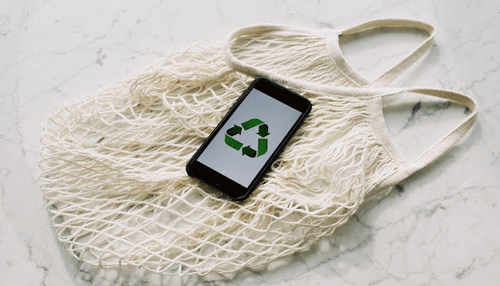Environmental impact is a huge problem. An easy way to make sure you’re considering the best practices is by doing an environmental impact assessment, which identifies the most significant impacts on your business or organization’s activities as well as opportunities for improvement.
One area where businesses can make a substantial positive difference in their environmental impact is by considering sustainable waste management practices, such as opting for construction dumpsters for rent. This not only helps in waste reduction but also promotes responsible resource management. Check out some other ways to achieve this goal below.
Use the 3 Rs
The 3 Rs of waste management refer to reduce, reuse, recycle. Reduce means to make less or consume fewer resources. Reuse means to use again; the act of using an item more than once rather than throwing it away and replacing it with another one.
Recycle means reprocess used material into a new product to prevent waste of potentially useful materials, reduce consumption of fresh raw materials, reduce energy usage, pollution, and water contamination from landfills by reducing the need for them along with saving landfill space.
You can hire a waste management expert to train your employees on implementing the 3Rs in your company. This step will help ensure that your employees get the correct information about how these waste management practices work. Waste management online courses also serve the same purpose
Following the 3 Rs helps an organization preserve the environment.
Use Tech To Prevent Pollution
Technology is an integral part of life in the 21st century. There are many tech-based solutions to help save energy and reduce waste, such as:
- intelligent home appliances refer to electronic devices that you can program to perform specific tasks automatically. For example, you could set your thermostat to adjust the temperature based on whether anyone is home.
- Intelligent lighting systems allow homeowners (and office managers) to turn off lights remotely if they forget after leaving their offices for the day. These also typically come with motion sensors, so unnecessary energy isn’t used at night when there’s little movement in rooms.
- Programmable power strips make it easy for people living and working in buildings with many different units (such as apartment complexes) to shut down appliances like computers and TVs quickly when no longer needed–without having to unplug them manually one by one.
- Energy-saving light bulbs are a smart alternative to traditional incandescent or halogen bulbs. They last longer and use a smaller amount of energy, which helps your monthly electric bill as well as the environment.Selecting a tech-based solution to save energy and reduce waste in your business involves careful consideration and planning. Begin by clearly defining your objectives. What specific energy and waste reduction goals do you want to achieve? Are you primarily focused on reducing energy consumption, minimizing waste, or both? Collect data on your utility bills, energy consumption patterns, and waste output to establish a baseline. This will help you quantify the potential savings and improvements from the technology solution. Moreover, consider the upfront costs, ongoing operational expenses, and the expected energy and waste reduction benefits. A positive ROI is crucial for justifying the investment.
Sensitize Your Employees and Society at Large
Sensitizing means talking to them about environmentally friendly practices and what they can do in their day-to-day lives. For example, if you own a company that manufactures house paint, tell your employees of the importance of using environmentally safe paints for interior decoration work.
You could also encourage people around you by limiting water use when brushing teeth or taking showers or businesses using thermal oxidizers. This way, people will see how easy it is to contribute towards an eco-friendly environment even with simple daily acts.
Encourage society at large through social media campaigns centred on recycling materials or reusing junk products into something new – which would be more beneficial than simply discarding old items away because this creates trash not only harmful to them but can create landfill sites too.
Mind Your Practices
You need to look at your current practices and see how you can improve. For example, do you have enough waste bins? Are they the right size for materials or too big/small? What is the recycling policy in your company, what are employees expected to do with their waste? Is it working well, or could it be improved upon?
Minding your practices is an ongoing process of asking questions, finding answers, and acting.
It is also essential to make sure employees are on board with this concept. They should know what they can do to help you improve your environmental impact. It doesn’t mean that everyone needs to become an expert, but it does require a change in mindset – looking at things from the perspective of how they affect the environment rather than just efficiency or cost-effectiveness.
Sustainable processing is possible with the help of technology. For instance, you can improve the sustainability of your existing industrial processes by adopting technological solutions that can optimize the use of chemical and mineral resources. In addition, technology can also help your business maximize the use of renewable energy sources efficiently and effectively, as you’ll find out more here.
Audit Your Materials and Processes
You need to know what materials you are using and where they come from. It also means knowing the processes involved in your company’s operations, not just the results. It will help you decide what to use, where it comes from and how to dispose of the material.
Technology can help you avoid wasting materials and with proper recycling and disposal of materials. By doing so, you can save money on procuring new materials and managing waste. For example, additive manufacturing technologies such as three-dimensional or 3D printing can help create construction materials that reduce waste. Factories can use large 3D printers to print and manufacture concrete panels for building new housing units.
Have a Recovery and Disposing Plan
Having a recovery and disposing plan means that you will stop the material from going back into production. You can do this by recycling, reusing, or recovering materials that are currently getting disposed of.
Recovering resources prevents them from becoming pollutants and reduces your carbon footprint while ensuring their reuse in other processes. Having a recovery plan also allows for proper disposal to not harm the environment further than required already. It can also reduce costs associated with scrapping items due to wear and tear, which ensures reduced waste management expenses over time too.
You can partner with a sustainable waste management facility to handle your business wastes properly. This step will help ensure that your wastes aren’t causing harm to animals, plants, and human beings. In addition, legitimate waste management facilities have insurance that can protect you in any legal matters arising from ill environmental practices.
By choosing construction dumpsters for rent, businesses can contribute to a more eco-friendly approach to their projects. These dumpsters are designed to handle the disposal of construction and demolition waste efficiently. Unlike traditional waste disposal methods, such as landfilling or incineration, renting construction dumpsters allows for the proper sorting and recycling of materials, reducing the overall environmental footprint of your operations.
Conclusion
In conclusion, there are plenty of ways that you can improve your environmental impact. It all starts with using the three Rs, which is to reduce, reuse and recycle resources wherever possible. To do this, you need to have a plan not to harm the environment any further than required already.



